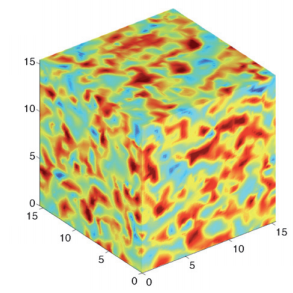Abstract
We investigate the effect of antiplasticizer additives on long-wavelength thermodynamic properties relating to the efficiency of molecular packing (density ρ and isothermal compressibility κT) and material stiffness (bulk modulus K, shear modulus G, and Poisson ratio ν) of model glass-forming polymer melts. Variations in the stiffness (G and molecular force constant km from the Debye–Waller factor 〈u2〉) and density ρ at a molecular scale are also considered. We find that antiplasticizer additives cause significant changes in the long-wavelength properties that are associated with an enhanced packing efficiency in the glass state, such as a decrease in κT and an increase in K, G, and ν. Moreover, values of the local elastic moduli in the glass state follow a nearly universal (approximately log-normal) distribution and a Fourier transform of the elastic constant fluctuations in space reveals a general −2 wave vector q scaling, as in order parameter fluctuations in critical fluids and magnetic systems near their critical point for phase separation and ordering, respectively. No discernible large-scale fluctuations in the density were observed, however, indicating that the local elastic constant fluctuations do not reflect density (free volume) fluctuations, as often assumed. These observations provide essential insights into how varying the fragility of glass formation, through the addition of antiplasticizer additives, alters the local mechanical properties of polymer melts and other glass-forming liquids.
